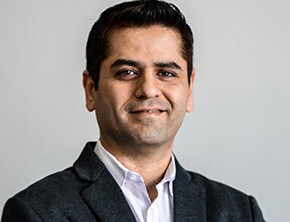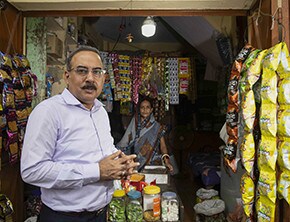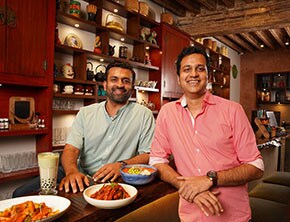
From devalued Axis Bank credit cards to Burma Burma's expansion plans, here are our most-read stories of the week
India's semiconductor dream, Tesla's new CFO, Samsung's India play are some of the stories that piqued the interest of our readers this week
 Image: Shutterstock
Image: Shutterstock
1) Bank more to gain more
 Axis Bank's credit cards were considered the prima donna of the ecosystem because of their generous rewards programmes. But the bank recently made sweeping changes to its credit cards—including Magnus, Magnus Burgundy, and Axis Bank-Flipkart cards. Irked customers are making their voices heard on social media. However, Axis Bank is not the only one making such moves. Earlier this year in May, SBI Cards and Payment Services discontinued cashback on services like jewellery, utilities, school and educational services, and insurance. With the acquisition of Citi’s consumer banking business, Axis Bank’s cards portfolio has ballooned to 1.2 crore, and the new changes have sent a clear message: Engage more to gain more. Read more
Axis Bank's credit cards were considered the prima donna of the ecosystem because of their generous rewards programmes. But the bank recently made sweeping changes to its credit cards—including Magnus, Magnus Burgundy, and Axis Bank-Flipkart cards. Irked customers are making their voices heard on social media. However, Axis Bank is not the only one making such moves. Earlier this year in May, SBI Cards and Payment Services discontinued cashback on services like jewellery, utilities, school and educational services, and insurance. With the acquisition of Citi’s consumer banking business, Axis Bank’s cards portfolio has ballooned to 1.2 crore, and the new changes have sent a clear message: Engage more to gain more. Read more
2) India's semiconductor dream
 The Covid-19 pandemic jolted the norms for many industries, and semiconductors were no exception. While automakers reduced their semiconductor chip orders due to slowing sales, the surge in demand for digital devices to aid the work-from-home or entertain-thyself-indoors mantra led to a severe shortage—experts say that it will only end by early 2024. This was also when governments worldwide realised that chips are just as essential as oil reserves. The crunch has led companies and the Indian government to ramp up domestic manufacturing and preserve the supply of chips. Global industry players are contributing to India's semiconductor dream too, and to reduce reliance on Taiwan (the biggest chip producer, which might be invaded by China, throwing another spanner in the wheels of the global economy). But what will it take to make an end-to-end chip in India? Let's find out.
The Covid-19 pandemic jolted the norms for many industries, and semiconductors were no exception. While automakers reduced their semiconductor chip orders due to slowing sales, the surge in demand for digital devices to aid the work-from-home or entertain-thyself-indoors mantra led to a severe shortage—experts say that it will only end by early 2024. This was also when governments worldwide realised that chips are just as essential as oil reserves. The crunch has led companies and the Indian government to ramp up domestic manufacturing and preserve the supply of chips. Global industry players are contributing to India's semiconductor dream too, and to reduce reliance on Taiwan (the biggest chip producer, which might be invaded by China, throwing another spanner in the wheels of the global economy). But what will it take to make an end-to-end chip in India? Let's find out.
3) Back to the basics
 Jongbum Park, popularly known as JB, arrived in India in 2018 as part of the reshuffle of the Indian team of South Korean electronics giant Samsung. It could not have been a tougher runway to land on. Samsung was no longer the leader—every quarter, the gap with a much-aggressive Chinese rival was widening at an alarming pace, and by the end of the first quarter of 2019, Chinese brands had a 66 percent market share. It was fast losing ground in the mass segment and was squeezed into the premium segment by OnePlus and Apple. JB went back to the Korean basics: Always prepare for tomorrow. If you don't harvest excessively in summer and preserve in winter, you will starve to death. JB waged a multi-level war to win back the Indian market. Here's a chronicle of the strategy as JB and Samsung gear up to take on Vivo and Apple, which are aggressively expanding their presence in India.
Jongbum Park, popularly known as JB, arrived in India in 2018 as part of the reshuffle of the Indian team of South Korean electronics giant Samsung. It could not have been a tougher runway to land on. Samsung was no longer the leader—every quarter, the gap with a much-aggressive Chinese rival was widening at an alarming pace, and by the end of the first quarter of 2019, Chinese brands had a 66 percent market share. It was fast losing ground in the mass segment and was squeezed into the premium segment by OnePlus and Apple. JB went back to the Korean basics: Always prepare for tomorrow. If you don't harvest excessively in summer and preserve in winter, you will starve to death. JB waged a multi-level war to win back the Indian market. Here's a chronicle of the strategy as JB and Samsung gear up to take on Vivo and Apple, which are aggressively expanding their presence in India.  Sundar Pichai of Alphabet, Satya Nadella of Microsoft, Leena Nair of Chanel and Arvind Krishna of IBM are some of the names that fascinate Indians because they lead the world's most prominent organisations. This growing list recently added one more name: Vaibhav Taneja. Tesla CEO Elon Musk has picked this Delhi University graduate, who spent 16 years working for global consultancy firm PricewaterhouseCoopers, as the automaker's chief financial officer. Taneja replaced Tesla veteran and a widely speculated successor to founder Musk, Zachary Kirkhorn, who will stay on until the end of the year to ensure a smooth transition. Taneja’s appointment as CFO comes when Musk has laid out elaborate plans to ramp up manufacturing, and the next destination is India. How does Taneja fit into these plans?
Sundar Pichai of Alphabet, Satya Nadella of Microsoft, Leena Nair of Chanel and Arvind Krishna of IBM are some of the names that fascinate Indians because they lead the world's most prominent organisations. This growing list recently added one more name: Vaibhav Taneja. Tesla CEO Elon Musk has picked this Delhi University graduate, who spent 16 years working for global consultancy firm PricewaterhouseCoopers, as the automaker's chief financial officer. Taneja replaced Tesla veteran and a widely speculated successor to founder Musk, Zachary Kirkhorn, who will stay on until the end of the year to ensure a smooth transition. Taneja’s appointment as CFO comes when Musk has laid out elaborate plans to ramp up manufacturing, and the next destination is India. How does Taneja fit into these plans?  "I wanted to build a good company. Not (necessarily) a large company," says Devesh Sachdev, managing director of Fusion Microfinance—the second-largest listed company in India in microfinance. Sachdev began the business where no other microfinance company wanted to go in 2010—Uttar Pradesh and Bihar. The worry was that being diversified across north India with rural branches was a cocktail for disaster. In 2023, Fusion has 1,103 branches across 20 states and 3.64 million active clients. It has grown rapidly with compounded sales and profit growth in the last five years of 46 percent and 64 percent, respectively. But the cyclicality of the microfinance sector has often vexed investors who want growth with dollops of predictability. Can Fusion live up to these standards? What is Sachdev's next plan of action?
"I wanted to build a good company. Not (necessarily) a large company," says Devesh Sachdev, managing director of Fusion Microfinance—the second-largest listed company in India in microfinance. Sachdev began the business where no other microfinance company wanted to go in 2010—Uttar Pradesh and Bihar. The worry was that being diversified across north India with rural branches was a cocktail for disaster. In 2023, Fusion has 1,103 branches across 20 states and 3.64 million active clients. It has grown rapidly with compounded sales and profit growth in the last five years of 46 percent and 64 percent, respectively. But the cyclicality of the microfinance sector has often vexed investors who want growth with dollops of predictability. Can Fusion live up to these standards? What is Sachdev's next plan of action?  Last week announcing its Q1 earnings for FY24, food delivery platform Zomato revealed that for the first time, the company had recorded a net profit of Rs2 crore with revenue at Rs2,416 crore. In the same quarter last year, Zomato had posted a net loss of Rs186 crore while its revenues stood at Rs1,414 crore. The improved performance certainly gave some hope to other new-age companies that had to shift from growing at breakneck speed to returning profits to the investors as funding winter chilled their bones. Then followed another excellent news from the ecommerce platform Meesho. Vidit Aatrey and Sanjeev Barnwal's company posted approximately Rs3,280 in revenue, but CFO Dhiresh Bansal did not reveal a specific number for profit. But, as they say, the devil is in the details. Ninand Karpe, founder and partner at 100x.VC, and Abhishek Goyal, co-founder at Tracxn, discuss these two results against the broader ecommerce picture on one of the latest episodes of the ToThePoint podcast.
Last week announcing its Q1 earnings for FY24, food delivery platform Zomato revealed that for the first time, the company had recorded a net profit of Rs2 crore with revenue at Rs2,416 crore. In the same quarter last year, Zomato had posted a net loss of Rs186 crore while its revenues stood at Rs1,414 crore. The improved performance certainly gave some hope to other new-age companies that had to shift from growing at breakneck speed to returning profits to the investors as funding winter chilled their bones. Then followed another excellent news from the ecommerce platform Meesho. Vidit Aatrey and Sanjeev Barnwal's company posted approximately Rs3,280 in revenue, but CFO Dhiresh Bansal did not reveal a specific number for profit. But, as they say, the devil is in the details. Ninand Karpe, founder and partner at 100x.VC, and Abhishek Goyal, co-founder at Tracxn, discuss these two results against the broader ecommerce picture on one of the latest episodes of the ToThePoint podcast.  Khao suey, a Burmese noodle soup, and friendship are the two factors that gave Ankit Gupta and Chirag Chhajer the idea to start a restaurant that will serve authentic Burmese food in Mumbai. Gupta and Chhajer were friends in school. Then they went their separate ways—Chhajer to Australia for studies and Gupta to train in hospitality. Fate brought them together, and they happened to visit China together. Their conversations revealed that they both wanted to do something new. In 2013, with about Rs 1.1 crore of their personal funds, the two started Hunger Pangs Pvt Ltd, the parent company, under which the first outlet of Burma Burma, a vegetarian, no-alcohol venture, was launched in 2014, in Mumbai’s Kala Ghoda area. This is the story of the bootstrapped, under-the-radar restaurant ready for an expansion spree.
Khao suey, a Burmese noodle soup, and friendship are the two factors that gave Ankit Gupta and Chirag Chhajer the idea to start a restaurant that will serve authentic Burmese food in Mumbai. Gupta and Chhajer were friends in school. Then they went their separate ways—Chhajer to Australia for studies and Gupta to train in hospitality. Fate brought them together, and they happened to visit China together. Their conversations revealed that they both wanted to do something new. In 2013, with about Rs 1.1 crore of their personal funds, the two started Hunger Pangs Pvt Ltd, the parent company, under which the first outlet of Burma Burma, a vegetarian, no-alcohol venture, was launched in 2014, in Mumbai’s Kala Ghoda area. This is the story of the bootstrapped, under-the-radar restaurant ready for an expansion spree. 



